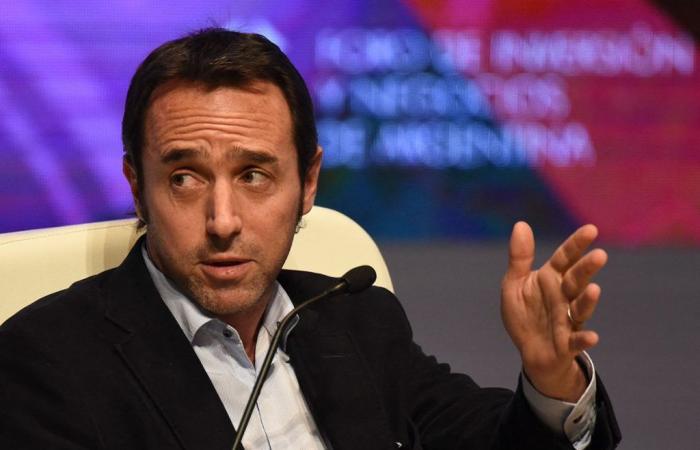A paragraph The report published by the IMF on Argentina reignited the fight between the banking sector and virtual wallets, a business that Marcos Galperin monopolizes with Mercado Pago. The relationship between the two has been strained since, through the expansion of Mercado Pago, the tech entrepreneur ventured into practices that overlap with those traditionally provided by financial entities, such as granting loans but without the regulations that weigh on them.
That is why it was striking that the International Monetary Fund spoke about “modify regulatory frameworks to guarantee a level playing field between fintech companies and traditional banking institutions”. According to the entity’s technicians, “these measures are intended to increase competition in the marketstrengthen the credit channel of monetary transmission and support a faster recovery of private sector credit.”
Actually, The organization echoed an official government document in its staff report, the letter of intent signed by Luis Caputo and Santiago Bausili, in their roles as Ministers of Economy and President of the Central Bank. They are the ones who anticipate in that text that “greater relaxation of banking regulations is planned and a regulatory review process to guarantee equal conditions between fintech companies and traditional banking institutions.”
From the banks they look askance at Galperin. Your virtual wallet also serves as a virtual fixed term, as it remunerates your clients for the balances that remain unused. It also enabled the Mercado Crédito operation, which allows online purchases in up to 12 installments, as if it were a card, and offers instant personal loans. They are services that compete directly with commercial banks.
In other countries, such as Mexico, the legislation is more restrictive and Mercado Libre had to obtain a special license, the same as that of other private banks, to offer this operation. In Argentina, the Central Bank did not require it.
Added to this are other benefits that the company has. In 2021 MELI (as it is known by the acronym under which it operates on the Stock Market) lmanaged to enter the Knowledge Economy Promotion Regime provided for by law 27,570, which among other advantages offers “segmented reduction of Income Tax according to the size of the company; a reduction of up to 70% in employer contributions and a 0% rate on services export duties,” according to the Ministry of Economy website.
These factors allow Galperin’s company stops paying around 100 million dollars annually. The company rejected being in an advantageous position and pointed out that it pays US$ 1,450 million a year in its own taxes, in addition to retaining and deriving US$ 1,900 million from other taxpayers to the treasury.
This being the case, and judging by the letter of intent that the government sent to the IMF, the mess It could be resolved not by expanding the regulations to Mercado Libre but by removing some of them from the other banks.
The situation became more evident by the very high media profile that Galperin acquired. The growth of his company, one of the few local “unicorns”, occurred alongside his intervention in politics: he actively supported Mauricio Macri first and Javier Milei currently.
From his self-imposed exile in Uruguay (another of the things that his detractors attribute to him, who reproach him for relying on the freedom of the market to accumulate million-dollar subsidies from the State and then settle in another country to pay less taxes), the tycoon “spices” on social networks not only at Kirchnerism but to all those who did not support Milei in the elections. In that tone he expressed himself in the dollar falls, stocks rise? “At some point will they think again that their ideas are bad for the country?”


